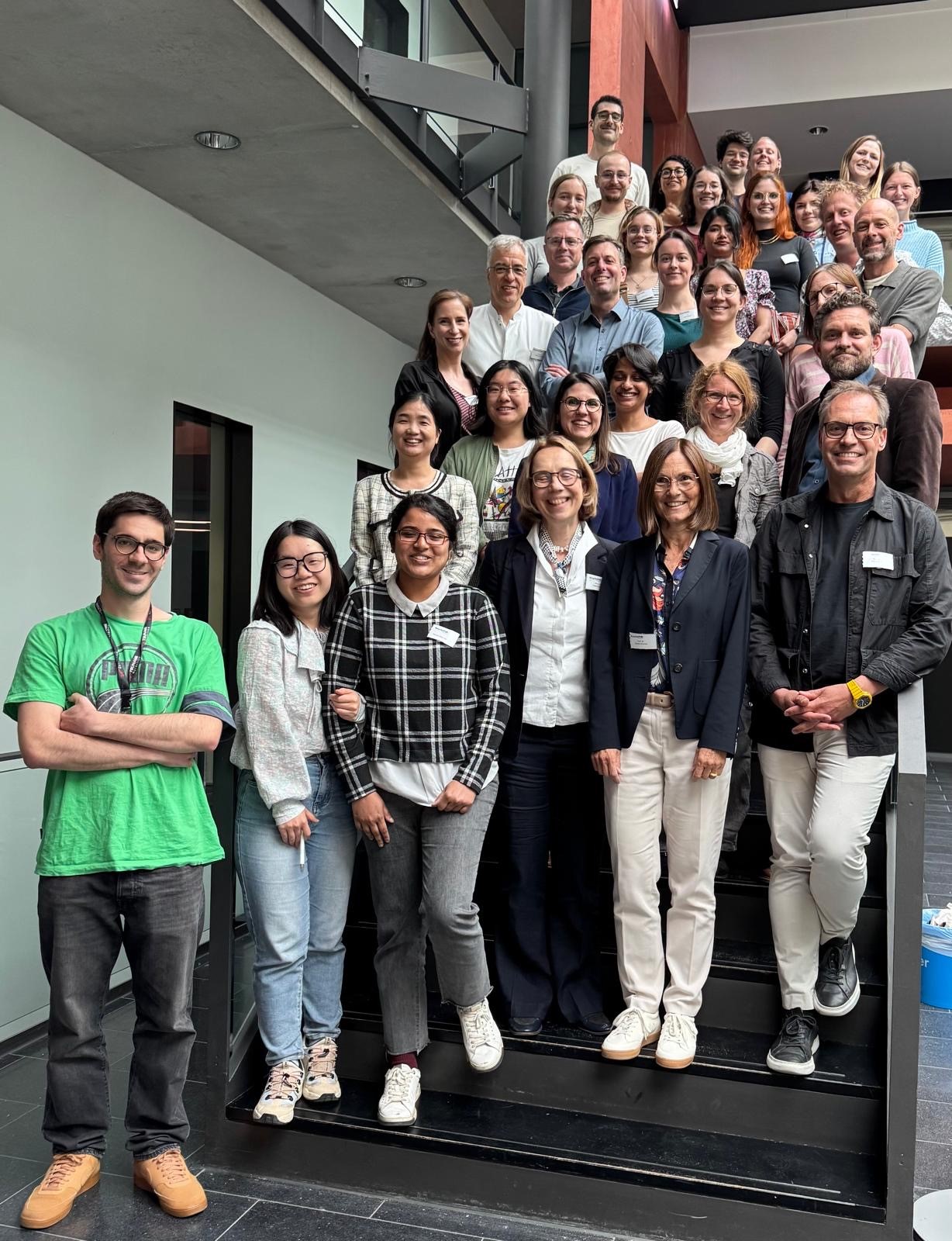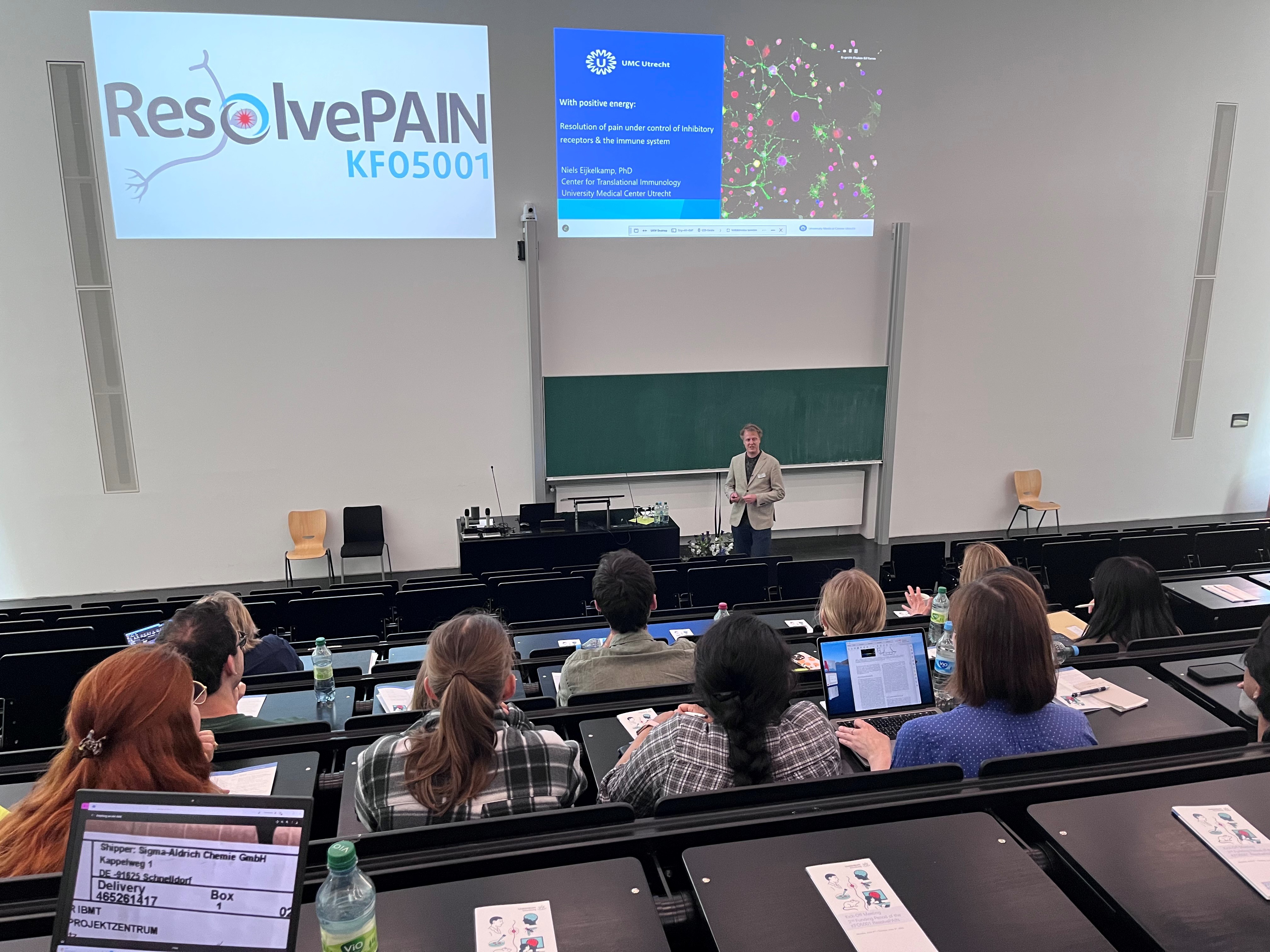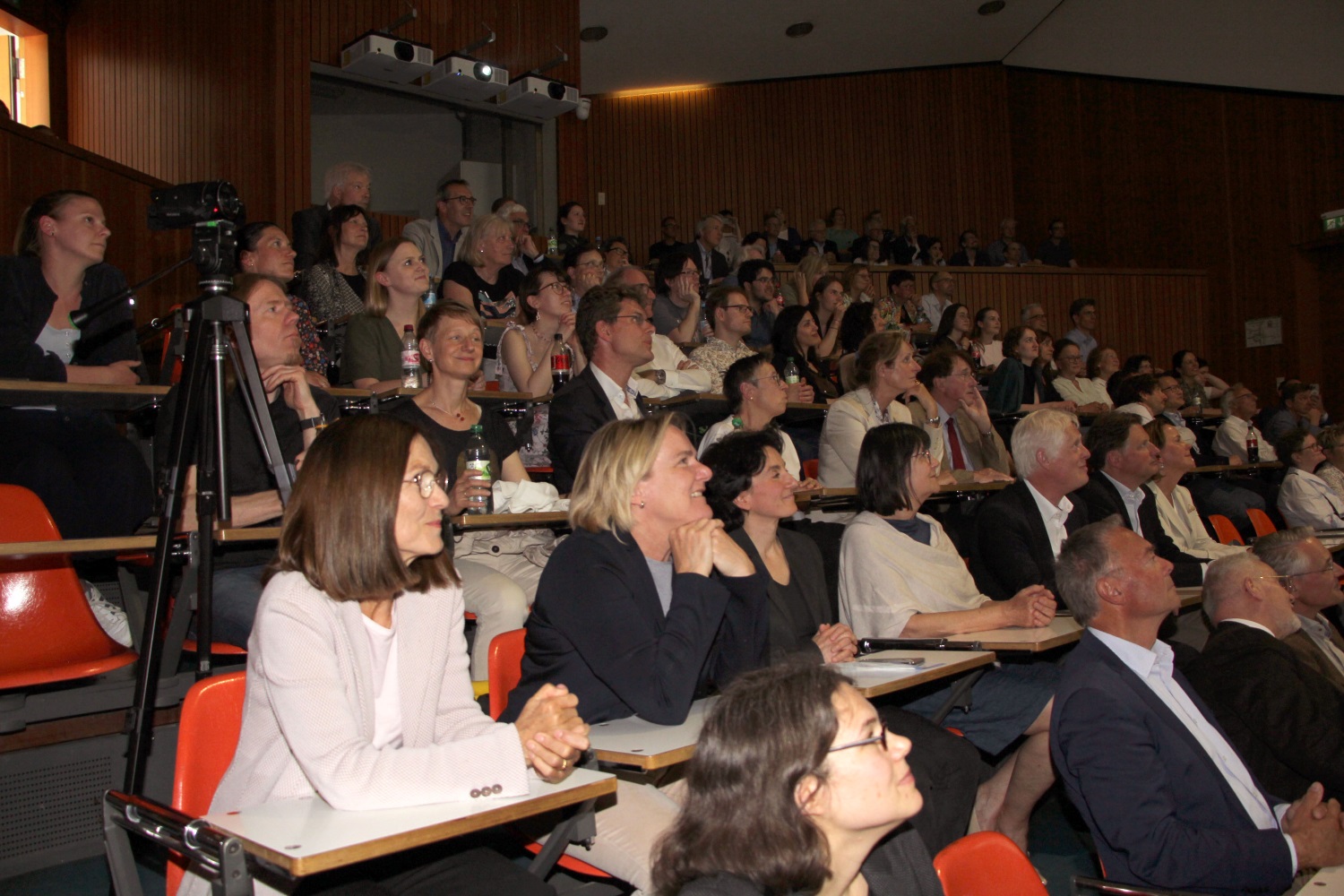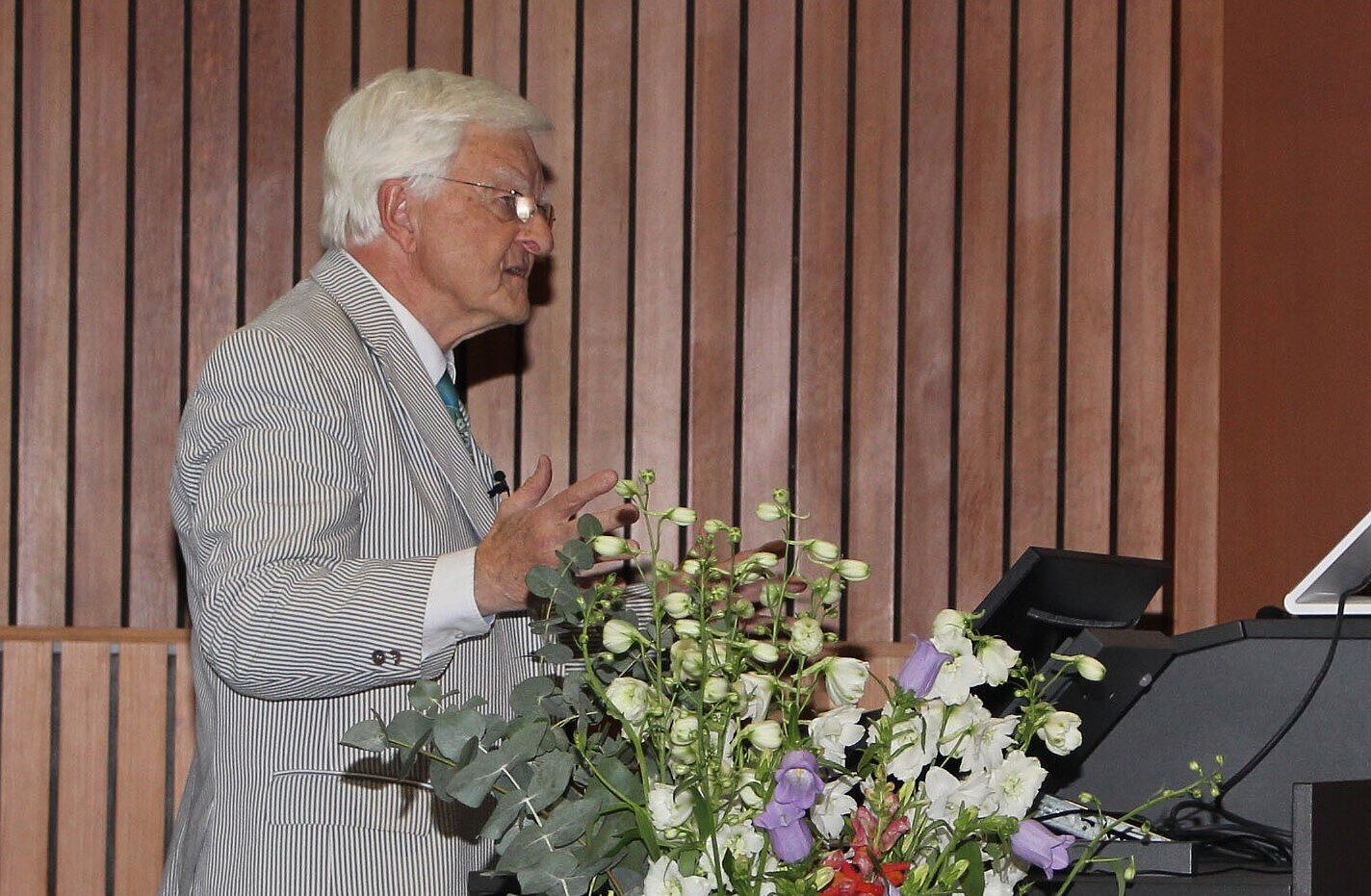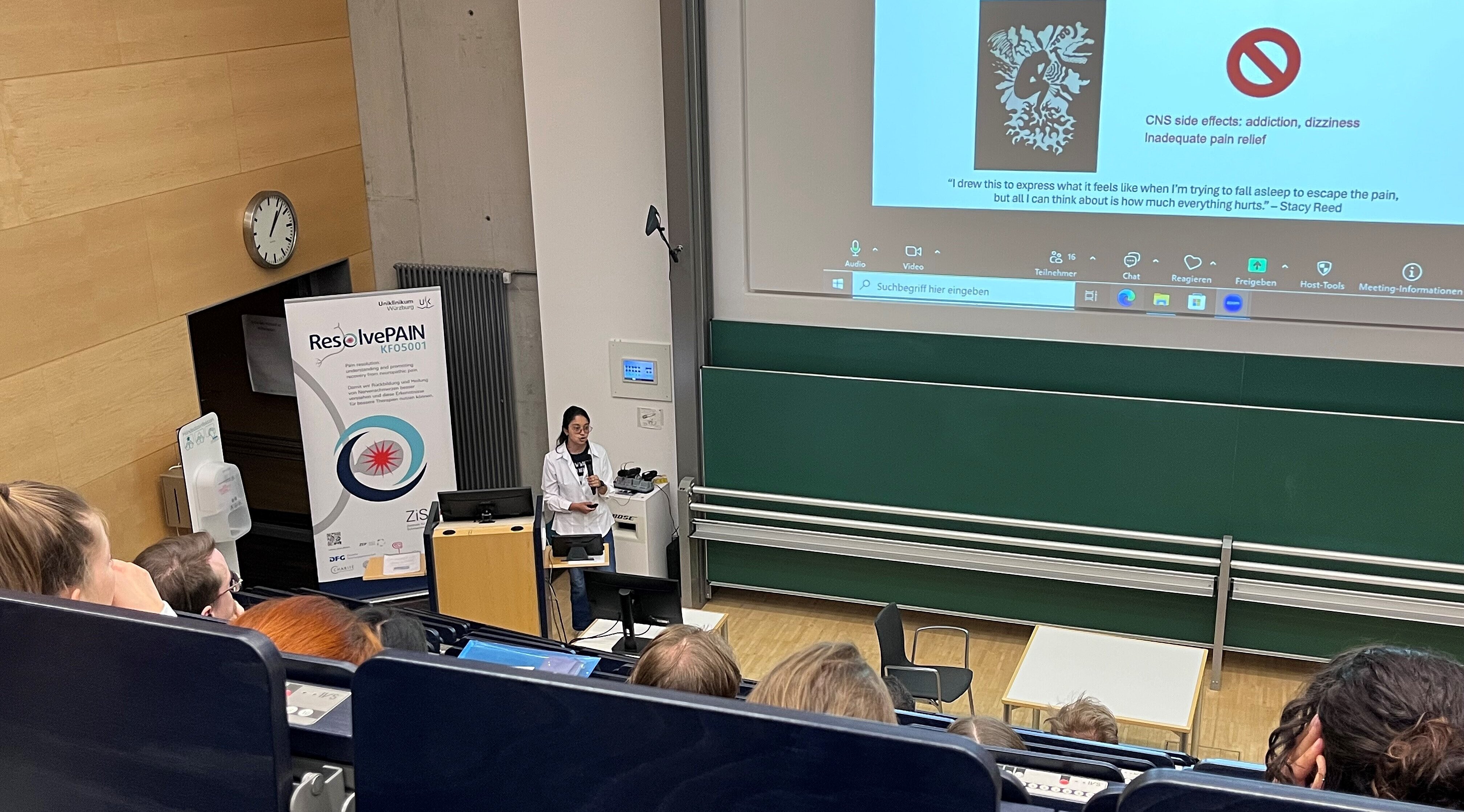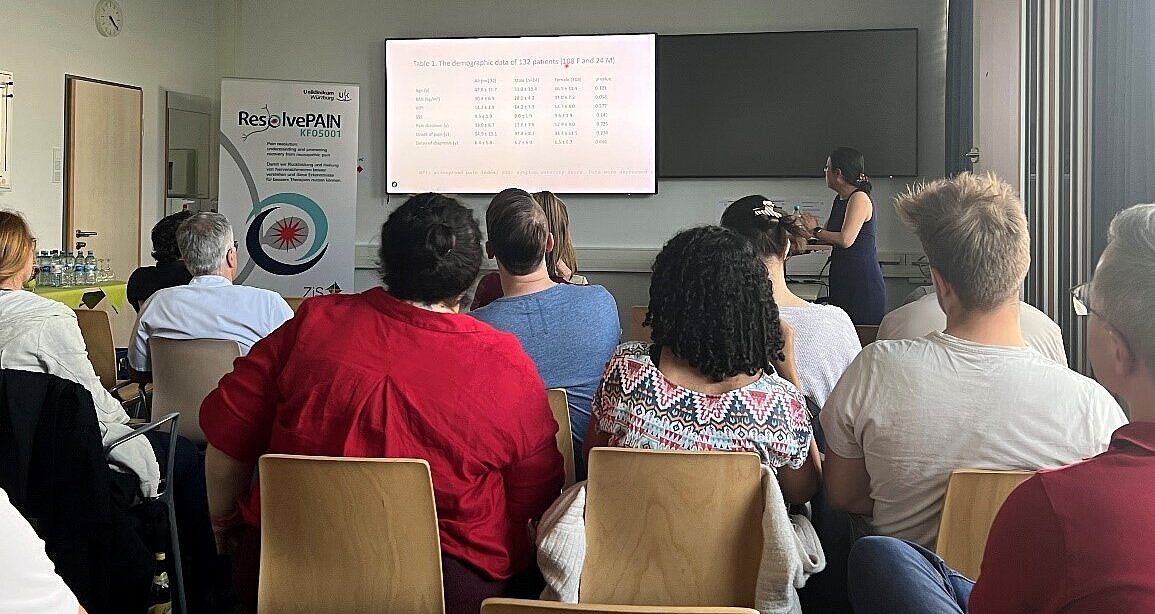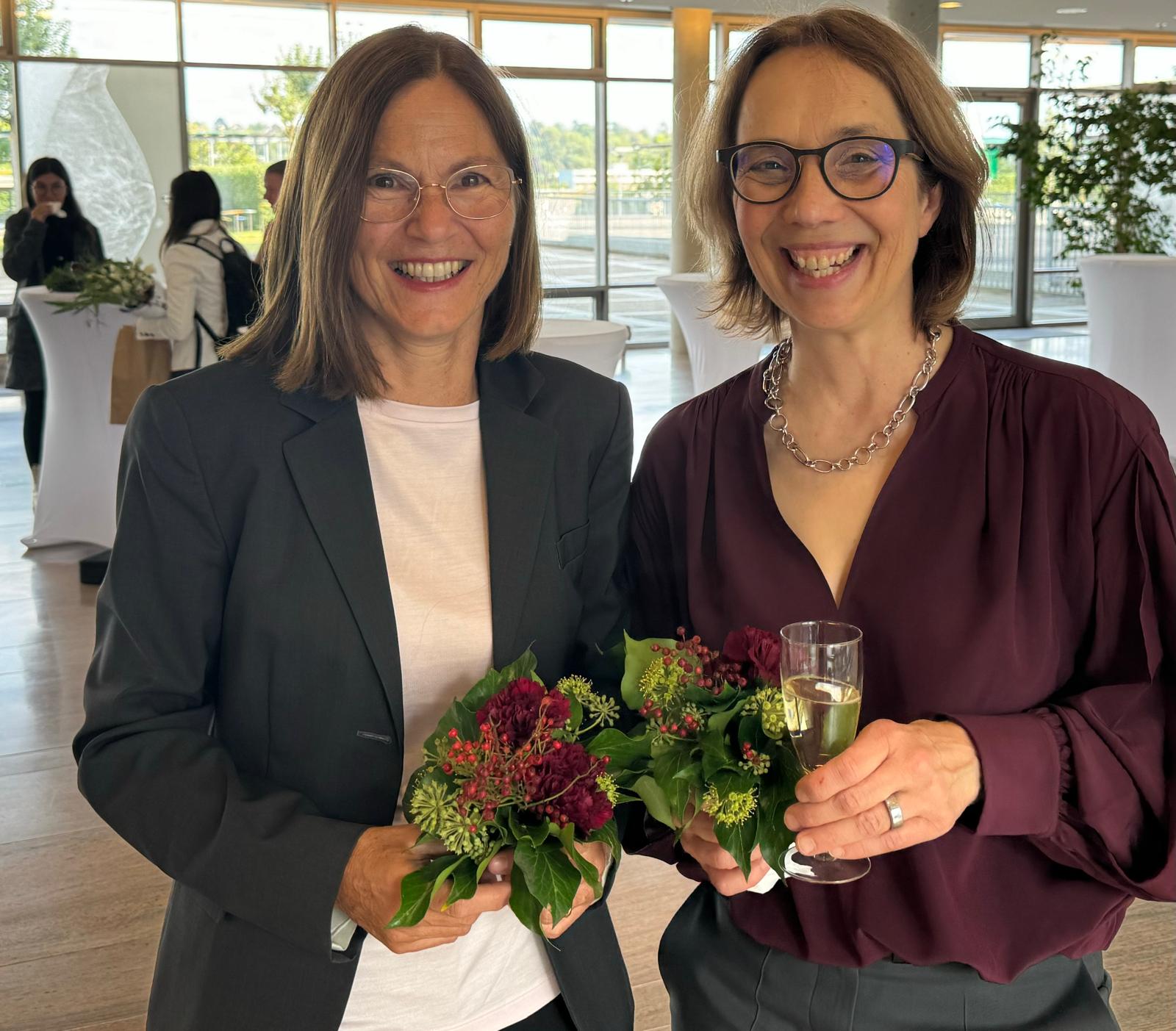Würzburg. One of the first tasks Claudia Sommer was given in March 1995 after starting work in the neurology department at Würzburg University Hospital (UKW) was to put up no smoking signs. But the then 36-year-old specialist in psychiatry and neurology refused. “As a new senior physician, I didn't want to make myself unpopular with all the smokers right away,” she says. For subsequent generations, it is now unimaginable that smoking was once allowed in hospital buildings or that doctors constantly ran around the building looking for lost X-ray images and were not allowed to go home in the evening until they had personally stuck the lab reports into the patient files. These and other anecdotes were recounted on May 2, 2025, in the packed lecture hall of the Head Clinics. Prof. Dr. Claudia Sommer had invited colleagues to a symposium to bid a fitting farewell after 30 years and take a look at current research and potential developments.
Continues as spokesperson for the ResolvePAIN clinical research group
Claudia Sommer is not really leaving. She has moved from B1 up the hill to Building A9, from the neurology department to the Center for Interdisciplinary Pain Medicine (ZiS), where she shares an office with Prof. Heike Rittner.
Together, the two physicians head the Clinical Research Group (KFO 5001) ResolvePAIN, which is now in its second funding period supported by the German Research Foundation (DFG) (see announcement dated December 17, 2024). Claudia Sommer is not only involved in projects of the research group, of which she is the spokesperson, but also in the Collaborative Research Centre 1158 (SFB 1158) at Heidelberg University. She currently supervises eight doctoral students in the natural sciences and approximately 20 medical students in various stages of their dissertations.
The privilege of a senior professorship
“I am infinitely grateful for the privilege of being able to continue working as a senior professor,” says Claudia Sommer. She considers the change of location important in order to make room for the next generation. But it is difficult for her to imagine "no longer having the great colleagues and cooperation partners who constantly challenge me intellectually. Or the many young students who want to work with me. That's wonderful." She adds that a senior professorship is not a given. Many clinics do not offer their retired scientists the opportunity to continue working as senior professors. It would be a shame to lose all the knowledge they have accumulated over the years.
Milestones in research into pain, polyneuropathies, fibromyalgia, and stiff person syndrome
In addition to pain research, Claudia Sommer has made a name for herself in the field of polyneuropathies. These are diseases of the peripheral nervous system, i.e., the nerves outside the brain and spinal cord. For example, she and her team discovered an autoantibody that destroys Ranvier's nodes. These structures are located on the nerve fibers and ensure that signals from the brain reach their destination. This has now become a separate field of research in which the researchers have made a name for themselves worldwide. Claudia Sommer has also been able to show that antibodies attack the neurons in stiff person syndrome. Furthermore, her research has freed fibromyalgia sufferers from the stigma that chronic pain is only related to the psyche.
Learning from patients and receiving research questions
Born in the Palatinate region of Germany, she wanted to be a researcher even as a child. She got her research questions from patients, so her entire professional life has been inextricably linked to clinical work and research. “I've always been fascinated by discovering mechanisms behind unexplained diseases that perhaps hardly anyone believes in, and showing that something is actually happening in the body and that we need to take the phenomenon seriously.” Each patient was a puzzle for her that needed to be solved.
As a senior professor, she is now only allowed to treat patients as part of research projects. “That's a shame, but the patients at the clinic are well cared for. I have very good successors.” What she will miss less is writing grant applications, which can be very labor-intensive, exhausting, and sometimes frustrating. But she is already involved in many applications again. “I find it difficult to say no to exciting projects. And as long as I still have the energy and enjoy it, why not?”
President of the Peripheral Nerve Society and editor of the European Journal of Neurology
Other institutions are also putting out feelers now that word has spread that she may have more time in the future. Starting in the summer of 2025, she will serve as president-elect for two years and then as president of the Peripheral Nerve Society for another two years. She also actively supports the GBS|CIDP Foundation International. This global non-profit organization supports people affected by Guillain-Barré syndrome (GBS), chronic inflammatory demyelinating polyradiculoneuropathy (CIDP), multifocal motor neuropathy (MMN), and related disorders. She will also soon become editor of the European Journal of Neurology, for which she has been deputy editor in recent years.
She is still a long way from her goal of working only half-time in the near future. But she already enjoys some freedoms that everyday life at the clinic did not allow. For example, it is an incredible luxury for her to play tennis in the morning before work or to add a week's vacation in Italy after a conference in Apulia.
Groundbreaking advances in the treatment of strokes and multiple sclerosis
Apart from digitalization and smoke-free clinics, she considers breakthroughs in the treatment of strokes and multiple sclerosis to be among the positive achievements of the past 30 years in neurology. "When I was a resident, stroke treatment was unpredictable. Today, anyone who arrives in time can be treated – thanks to the fantastic combination of understanding what happens during a stroke and technology for removing the thrombus. And a diagnosis of multiple sclerosis no longer automatically means an early death. Thanks to modern therapies, many patients with MS can lead completely normal lives."
She is cautiously optimistic about the future: although it is not her field of research, she would like to see a cure for ALS, a terrible disease that suddenly and unexpectedly takes people's lives. In her opinion, great progress is being made in the treatment of immunological neuropathies. In pain therapy, she hopes that one of the many ideas will lead to a drug that significantly reduces pain and has few or no side effects. At the moment, they can reduce pain by 50 percent on average. But she is not satisfied with that. “If pain no longer serves as a warning sign, then it should disappear completely.” Claudia Sommer is working on it.
Test subjects wanted for various studies
The research conducted by Claudia Sommer, her colleagues, and doctoral students would not be possible without the participation of patients and healthy control subjects who take part in the studies. Claudia Sommer is delighted with the amazing commitment shown by citizens from Würzburg and the surrounding area and would like to thank all current and future study participants for their often selfless dedication, which is making a significant contribution to the advancement of knowledge. Healthy control subjects and patients with migraine are currently being sought for various studies (see announcement dated March 28, 2025).
A detailed profile of Prof. Dr. Claudia Sommer can be found in the UKW series #WomenInScience.
Text: Science Communication UKW / KL
